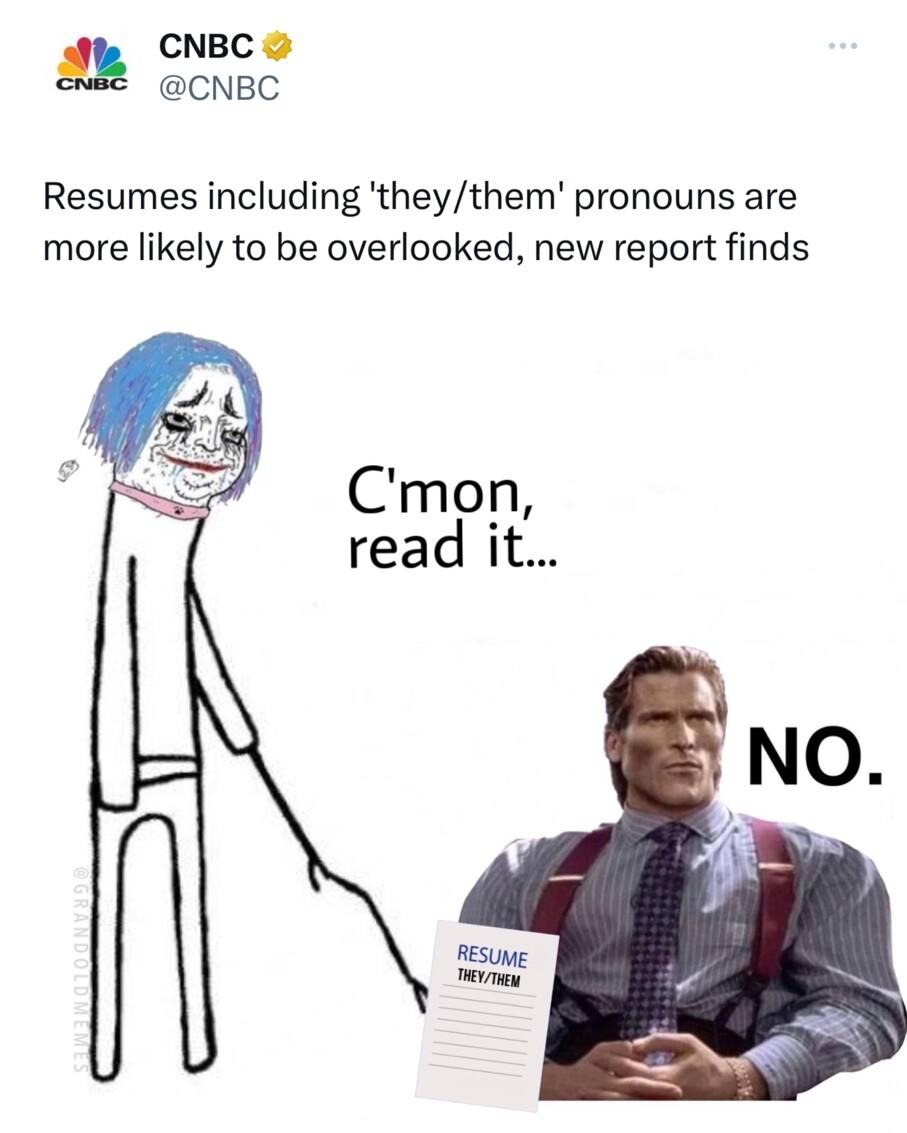Resumes including ‘they/them’ pronouns are more likely to be overlooked, new report finds

Inclusivity shouldn’t just be present in the workplace — it should be practiced during the hiring process as well. But unfortunately, nonbinary job seekers are facing clear biases during their job search.
According to a new report from Business.com, a business resource platform, over 80% of nonbinary people believe that identifying as nonbinary would hurt their job search. Similarly, 51% believe their gender identity has affected their workplace experience “very or somewhat negatively.”
Ryan McGonagill, director of industry research at Business.com and author of the report, says these statistics show just how much work there is to do around diversity, equity, inclusion and belonging in the workplace.
“We clearly have more work to do on several fronts. Over the past 10 years, DEIB efforts have been prioritized by many companies; however, the results of this study and past research show that teams in most industries aren’t proportionately representative of the U.S. population,” McGonagill tells CNBC Make It. “And worse, many people (like the nonbinary individuals we spoke with in our research) feel like they don’t belong.”
“Companies should have clearly-outlined initiatives and timelines for improving diversity, equity and inclusion in the workplace. On top of that, they should measure their employees’ sense of belonging. Investing in these efforts can only be positive for companies and team members alike.”
‘Phantom’ resume test exposes bias
Business.com also went a step further by sending two identical phantom resumes to “180 unique job postings that were explicitly open to entry-level candidates” in an effort to test “whether or not the inclusion of gender-neutral pronouns impacts how employers perceive resumes.”“Both featured a gender-ambiguous name, ‘Taylor Williams.’ The only difference between the test and control resumes was the presence of gender pronouns on the test version,” McGonagill said in the report. “The test resume included “they/them” pronouns under the name in the header.” She/her and he/him pronouns were not tested.
The phantom resume including pronouns received 8% less interest than the one without, and fewer interview and phone screening invitations.
According to the report, over 64% of the companies that received these resumes were Equal Opportunity Employers, something that made the results even more “worrisome.”
“The law makes it clear that you cannot base any employment decision (hiring, terminating, or otherwise) based on their gender identity,” McGonagill says. “It’s incredibly disappointing and unethical that many of the hiring managers in our study would disqualify a candidate for being authentic.”
‘Check yourself and hold your team accountable’
Zelna McGee, senior director of learning and development at Centerfield Media, Business.com’s holding company, says that inclusive hiring practices and workplaces have to be intentional about minimizing bias.“When you’re determining your hiring process, think about how bias could be introduced and how to mitigate it,” McGee explains. “For example, your interview panel should be diverse in order to hold each other accountable and bring awareness to blind spots. The same can be said for filtering resumes or any other part of the hiring process.”
“If someone is new to hiring, have them partner with someone more experienced that could bring these biases to light. We all have biases, even if we don’t want to or don’t believe that we do. Put strategies in place to check yourself and hold your team accountable.”
For nonbinary individuals struggling to feel accepted as their authentic selves in the workplace, McGee urges them to speak out about their experiences.
“If you have a DEIB leader in your organization, reach out to them. It’s their job to prevent and have a deep understanding of bias in the workplace. If you work for a smaller company without that function, speak with someone you can trust,” McGee says. “What have you experienced? What’s been said to make you feel othered? Make your voice heard — you deserve that, and you do not deserve to feel unaccepted.”
“Company leaders should also be proactive in preventing these situations through employee education and conversation. Help your team members understand what it means to truly be inclusive and consider different perspectives.”
Source:https://www.cnbc.com/2023/03/02/res...ent=Main&utm_medium=Social&utm_source=Twitter





